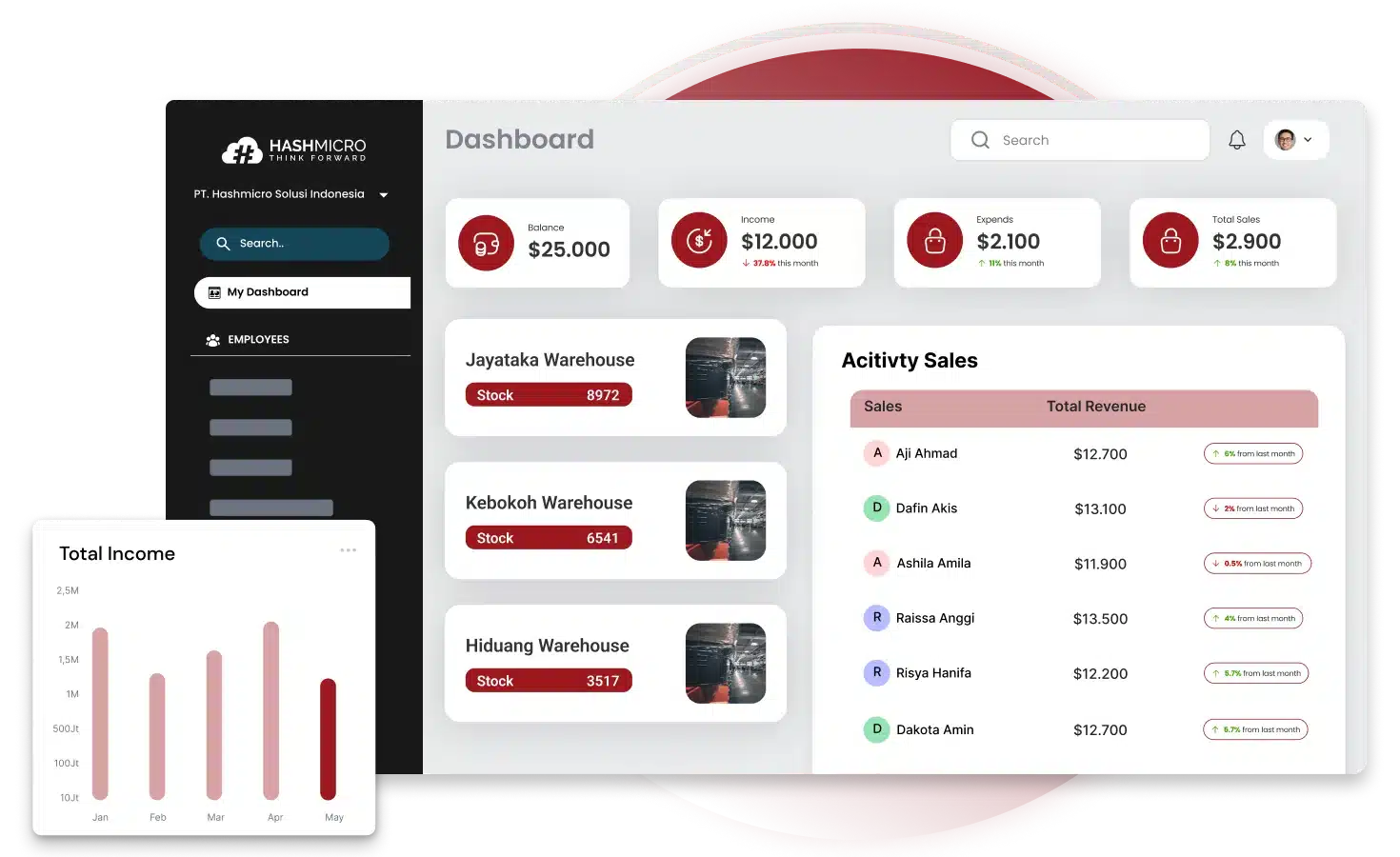ERP cost is a crucial thing that many businesses consider carefully before implementing the system. Are you one of them? If so, you are in the right place.
Knowing the ERP price is indeed a factor that will determine the extent to which your company is able to accommodate the latest technology, especially if there are systems that charge prices that are not based on the capabilities and features of the existing ERP. Hay naku! Don’t let you experience this loss.
Therefore, the following article will explain the ideal ERP cost for businesses in the Philippines and provide vendor suggestions that provide the most value for many features and the latest technology updates. Without further ado, let’s start the discussion.
Key Takeaways |
Table of Contents

Cloud ERP: A Shared Resource for SMEs
Cloud-based ERP solutions have made ERP more accessible, especially for SMEs. These systems operate by sharing resources like infrastructure (IaaS), software (SaaS), and platforms (PaaS), which reduces costs for businesses using the same services.
However, with shared resources come trade-offs. Data security and customization options are common concerns when using ERP software Philippines. Additionally, not all ERP vendors offer every module under one roof, so sharing modules between vendors could further benefit SMEs.
Key Factors Affecting ERP Cost in the Philippines
 Several factors determine the cost of ERP systems in the Philippines. Understanding these elements can help businesses make informed decisions when choosing the right solution.
Several factors determine the cost of ERP systems in the Philippines. Understanding these elements can help businesses make informed decisions when choosing the right solution.
1. On-premise vs Cloud implementation
An on-premise ERP solution is a long-term investment, similar to buying office space. They can be customized for specific business needs and offer robust data security but are costly due to ongoing support and maintenance needs.
On the other hand, cloud-based ERP systems incur operational costs through periodic subscriptions. While the vendor handles data security, customization options are generally limited. Due to its lower cost and reduced risk, cloud ERP is often the ideal choice for SMEs, particularly those in the startup phase.
2. Technology
The concept is that the more complex and advanced the technology you want to implement into the system, the higher the ERP cost will also be. Unfortunately, some vendors do not provide detailed and valid pricing scheme options.
However, you don’t need to worry because the following banner will provide you with the latest ERP cost scheme that fits your needs. You can input your preference for the latest technology and others, and then the system will calculate the cost of ERP in detail for you.

3. Modules
ERP cost Philippines is heavily influenced by the number and type of modules a business chooses. Complex, essential modules like accounting, inventory management, and management information systems (MIS) are typically more expensive than simpler modules such as purchasing and point-of-sale (POS).
4. Level of customization
Customization is particularly relevant for on-premise implementations, where businesses can adjust the system to meet their unique needs. However, customization comes at a cost. ERP vendors typically charge based on the number and complexity of changes and how those changes affect the overall system.
5. Resource sharing for cloud ERP
Cloud-based ERPs can operate in several ways, including sharing software (SaaS), infrastructure (IaaS), or platforms (PaaS). The type of resource sharing selected will impact the overall ERP cost Philippines.
6. Number of users
Shared ERP systems often come with a basic user allowance, with additional charges for extra users. However, there is the best ERP system vendor in Southeast Asia that will not charge you additional fees. There are unlimited users for those of you who have a business with many operators.
7. Brand and Experience
Finally, the reputation and experience of the ERP vendor are major pricing factors. Established vendors with a proven track record typically charge more for their systems than newer, less experienced providers. However, this often comes with the assurance of reliability and quality.
HashMicro ERP System: The Most Reliable ERP with a Reasonable Price
 If you read earlier that there are systems that provide ERP cost schemes and have the advantage of unlimited users, then the HashMicro ERP system has those advantages.
If you read earlier that there are systems that provide ERP cost schemes and have the advantage of unlimited users, then the HashMicro ERP system has those advantages.
Established in 2015, HashMicro has served more than 1750 Southeast Asian businesses, such as Changi Airport, Bank of China, Brinks, and many more. HashMicro has reached a fantastic milestone, making it the favourite business choice in the Philippines. Are you one of them?
HashMicro ERP software Philippines offers other benefits, such as a free demo, a system that complies with local Philippine regulations, and free business consultations with experts. Through these benefits, HashMicro still offers powerful and comprehensive features, such as:
- Built-in BI (Business Intelligence): Tools to transform and rotate data from different angles for more in-depth analysis.
- Simple bookkeeping: Automatic and accurate recording of transactions for easy-to-understand financial reports.
- Production cost control: Full control of production costs, starting from purchasing, production results, and component transfer from defective products.
- Multi-companies management: Manage various companies with different operational and organizational structures in one centralized ERP platform.
- Mobile apps: The app is available on iOS and Google Play Store platforms, allowing easy access from various mobile devices.
- Sheet management: Efficiently manage, automate, and analyze spreadsheets or business documents in spreadsheet format while ensuring data security and module integration.
- Access-level: Features that manage and restrict employee access to various data and functions in the system based on roles and responsibilities.
Conclusion
As more businesses in the Philippines recognise the value of ERP systems, understanding the various factors that influence pricing becomes essential. Whether opting for a cloud-based solution or investing in a customized on-premise system, choosing the right system will impact the ERP cost.
Modules, technology, and customization contribute to the overall cost, so businesses must weigh these considerations carefully to ensure they are getting the most value for their investment. To explore ERP cost with robust features, click here for a free demo to determine which system is best for you.

FAQ About ERP Cost
-
What is the ERP cost?
ERP cost is a combination of upfront expenses, such as software licenses and implementation, and ongoing costs, like maintenance, updates, and support. It can vary based on factors like system complexity, business size, and deployment type (cloud or on-premise). Customization, training, and integration also influence the overall cost.
-
What does ERP stand for?
ERP stands for Enterprise Resource Planning. It refers to software systems that help organizations manage and integrate core business processes like finance, supply chain, manufacturing, and human resources into one unified system.
-
What is ERP software used for?
ERP software streamlines and integrates various business processes across an organization. It helps manage core functions such as finance, supply chain, inventory, procurement, human resources, and manufacturing within a single system. ERP software improves efficiency, decision-making, and overall business performance by providing real-time data and insights.



































